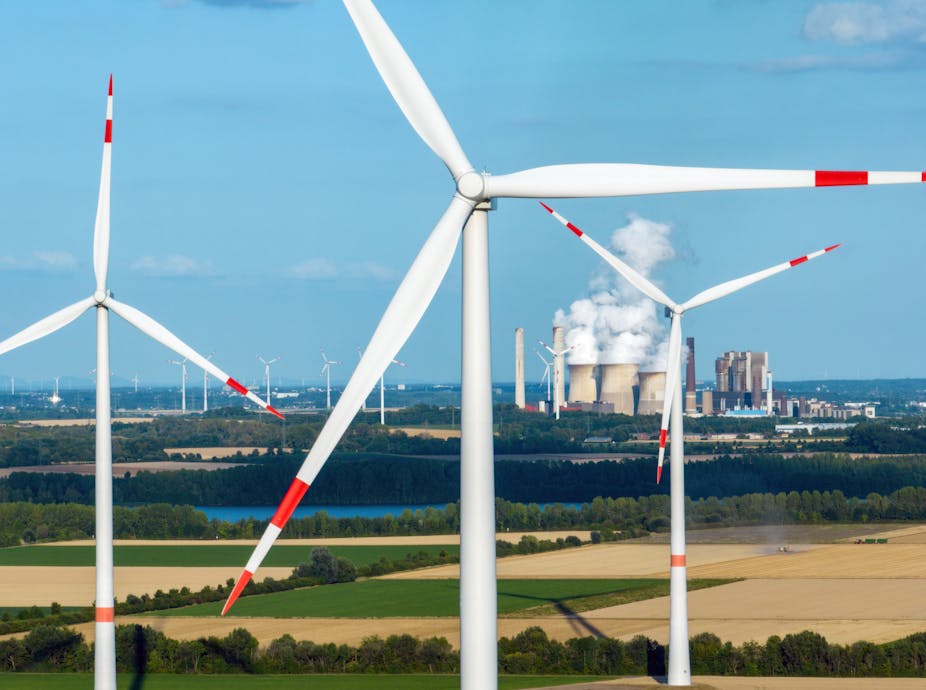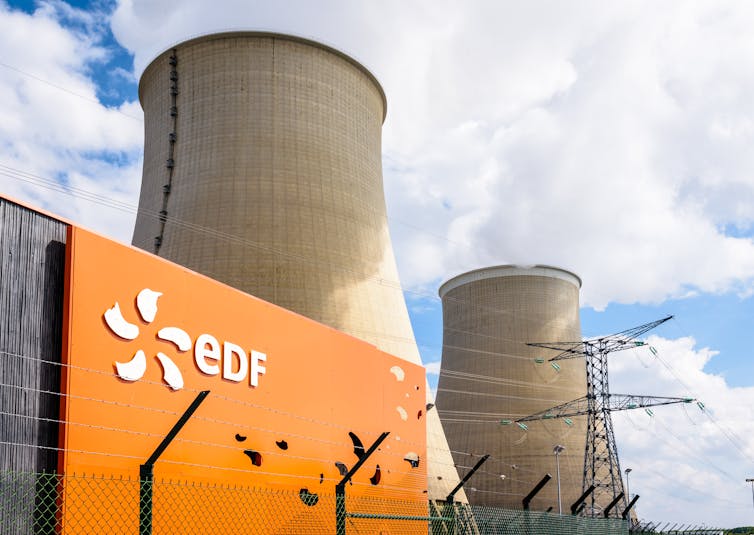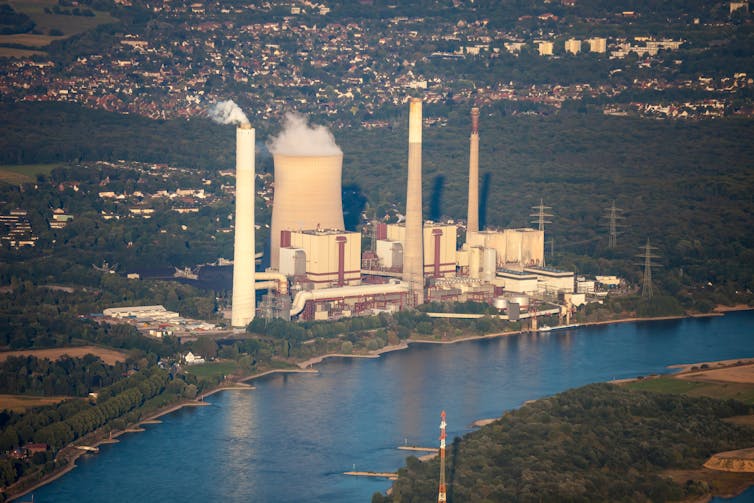Published: November 17, 2022
THE CONVERSATION


A country’s ability to pursue major energy reforms hinges on the government’s capacity to defuse political opposition. WilfriedB/Shutterstock
Russia’s invasion of Ukraine upended global energy markets. Sanctions on Russian exports and the suspension of gas deliveries to several European countries sent oil and gas prices skywards.
The magnitude of the shock is reminiscent of the 1970s oil crisis, where an embargo imposed on the sale of oil by members of the Organisation of Petrol Exporting Countries led to global fuel shortages and elevated prices. Governments sought to reduce their dependence on imported oil by transitioning their energy systems towards domestic resources. Facing the current crisis, countries are also moving away from importing energy while pursuing decarbonisation.
In both instances, some have been more successful than others in pursuing energy reform. My colleagues and I analysed the response of industrialised democracies to the 1970s crisis, climate change and to the current energy crisis. We found that a country’s ability to pursue major energy reforms hinges on the government’s capacity to defuse political opposition.
Reforms are costly for both households and businesses. For example, a tax on oil consumption increases the cost of energy for consumers while policies that require businesses to switch to renewable energy impose costs on firms and disrupt fossil fuel company profits. Politicians therefore tend to face strong opposition from both consumers and producers when embarking on energy transitions.
To defuse opposition, we find that governments have two options.
Russia’s invasion of Ukraine upended global energy markets. Sanctions on Russian exports and the suspension of gas deliveries to several European countries sent oil and gas prices skywards.
The magnitude of the shock is reminiscent of the 1970s oil crisis, where an embargo imposed on the sale of oil by members of the Organisation of Petrol Exporting Countries led to global fuel shortages and elevated prices. Governments sought to reduce their dependence on imported oil by transitioning their energy systems towards domestic resources. Facing the current crisis, countries are also moving away from importing energy while pursuing decarbonisation.
In both instances, some have been more successful than others in pursuing energy reform. My colleagues and I analysed the response of industrialised democracies to the 1970s crisis, climate change and to the current energy crisis. We found that a country’s ability to pursue major energy reforms hinges on the government’s capacity to defuse political opposition.
Reforms are costly for both households and businesses. For example, a tax on oil consumption increases the cost of energy for consumers while policies that require businesses to switch to renewable energy impose costs on firms and disrupt fossil fuel company profits. Politicians therefore tend to face strong opposition from both consumers and producers when embarking on energy transitions.
To defuse opposition, we find that governments have two options.

A protest in Brussels over the cost of energy, September 2022.
1. Insulation
The first is to insulate the policymaking process from voter discontent and business interference. A country’s political institutions shape the extent to which this can be achieved.
Proportional electoral rules, where the distribution of seats corresponds with the proportion of votes for each party, can protect governments from voter backlash. The likelihood that a small change to vote shares will remove a government from power is reduced under this system.
In countries with strong bureaucracies, civil servants enjoy substantial discretion to intervene in the economy to achieve policy goals. Their long-term job security means they face less risk of termination or demotion for upsetting powerful interest groups. This insulates policymaking and can enable governments to enact reform over the wishes of entrenched business opposition.
France’s production of nuclear energy increased 14-fold between 1972 and 1985. Reforms were carried out by a strong and centralised public administration with the authority to implement policy change over the opposition of business and affected communities. The national utility, Electricité de France (EDF), was also owned by the state. This offered the French government additional insulation and granted it control over the direction of the country’s electricity sector.
Although EDF is no longer state owned, the French government holds a majority stake in the company. This allows France to pursue a similar response to the current energy crisis. The French president, Emmanuel Macron, called for the construction of 14 new nuclear reactors earlier this year.

The Nogent-sur-Seine nuclear power plant, France. olrat/Shutterstock
2. Compensation
Governments can also secure support for energy reform by using compensation. Countries with developed welfare states can use existing social policy to soften the impact of energy price increases for households. Governments that enjoy close relationships with business can also negotiate with industry and exchange compensation for their support.
Compensatory bargaining with industry associations and labour unions allowed Germany to transition away from oil in the 1970s. From 1973 to 1985, subsidy schemes enabled a 30% increase in coal power and a 13-fold increase in nuclear energy generation. At the same time the government used the welfare system to ease the burden of higher energy costs for households through financial support.
Governments can also secure support for energy reform by using compensation. Countries with developed welfare states can use existing social policy to soften the impact of energy price increases for households. Governments that enjoy close relationships with business can also negotiate with industry and exchange compensation for their support.
Compensatory bargaining with industry associations and labour unions allowed Germany to transition away from oil in the 1970s. From 1973 to 1985, subsidy schemes enabled a 30% increase in coal power and a 13-fold increase in nuclear energy generation. At the same time the government used the welfare system to ease the burden of higher energy costs for households through financial support.

Coal-fired power station on the banks of the River Rhine, Germany. riekephotos/Shutterstock
Germany is again using compensatory strategies as it transitions away from fossil fuels. The country negotiated the “coal compromise” between 2018 and 2020. The scheme provides €40 billion (£35 billion) to coal companies and coal mining regions in return for political support for the plan to phase-out coal production by 2038.
Retreat
When governments can pursue neither insulation nor compensation, they let markets drive change.
Majoritarian electoral rules, a small welfare state and limited coordination between the state and business have restricted the ability of US governments to pass costly energy reforms.
Attempts to reduce dependence on imported oil during the 1970s – from gasoline taxes to energy efficiency regulations – withered in the face of political opposition. The case is similar for climate policy. Successive US governments have struggled to pass major reforms, whether it be an energy tax in 1993 or the then US president Barack Obama’s plan to impose emissions limits on power plants in 2015.
In response to the current energy crisis, the focus has been on markets. The US government has attempted to reduce energy prices by expanding domestic oil production and lobbying Saudi Arabia to increase its oil output.
Yet even countries with a low capacity for insulation or compensation can still pursue energy reform. To do this, policies must not impose visible and direct costs on society. A recent example is the US’s Inflation Reduction Act. Instead of reducing emissions through taxation, penalties or fines, the legislation relies on subsidies for clean technologies funded by general tax revenues. By using carrots and no sticks, many of the political difficulties associated with major energy reforms can be avoided.
Energy transitions are deeply political processes. While the current energy crisis is an opportunity to accelerate the transition towards clean energy, the scale and pace of such change will depend on the capacity of governments to defuse political opposition.
Germany is again using compensatory strategies as it transitions away from fossil fuels. The country negotiated the “coal compromise” between 2018 and 2020. The scheme provides €40 billion (£35 billion) to coal companies and coal mining regions in return for political support for the plan to phase-out coal production by 2038.
Retreat
When governments can pursue neither insulation nor compensation, they let markets drive change.
Majoritarian electoral rules, a small welfare state and limited coordination between the state and business have restricted the ability of US governments to pass costly energy reforms.
Attempts to reduce dependence on imported oil during the 1970s – from gasoline taxes to energy efficiency regulations – withered in the face of political opposition. The case is similar for climate policy. Successive US governments have struggled to pass major reforms, whether it be an energy tax in 1993 or the then US president Barack Obama’s plan to impose emissions limits on power plants in 2015.
In response to the current energy crisis, the focus has been on markets. The US government has attempted to reduce energy prices by expanding domestic oil production and lobbying Saudi Arabia to increase its oil output.
Yet even countries with a low capacity for insulation or compensation can still pursue energy reform. To do this, policies must not impose visible and direct costs on society. A recent example is the US’s Inflation Reduction Act. Instead of reducing emissions through taxation, penalties or fines, the legislation relies on subsidies for clean technologies funded by general tax revenues. By using carrots and no sticks, many of the political difficulties associated with major energy reforms can be avoided.
Energy transitions are deeply political processes. While the current energy crisis is an opportunity to accelerate the transition towards clean energy, the scale and pace of such change will depend on the capacity of governments to defuse political opposition.
Author
Jared Finnegan
Lecturer in Public Policy, UCL
Disclosure statement
Jared Finnegan's research has received funding from the Balzan Foundation (via Professor Robert Keohane) and the European Union.
Lecturer in Public Policy, UCL
Disclosure statement
Jared Finnegan's research has received funding from the Balzan Foundation (via Professor Robert Keohane) and the European Union.
No comments:
Post a Comment